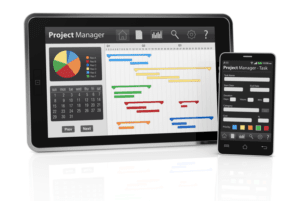Accounting Software For Real Estate Agents

Behind every successful real estate business—whether it’s a rental property portfolio or a bustling real estate brokerage—lies a well-maintained bookkeeping system. Real estate bookkeeping is not just about numbers; it’s about understanding the financial health of your business, tracking performance, and staying compliant with tax regulations. In this guide, we’ll explore everything you need to know to set up and maintain an effective bookkeeping system tailored for real estate success. Disclosure is a vital principle in real estate accounting that ensures transparency and compliance with legal and regulatory requirements. It involves fully and accurately disclosing financial information, including any potential liabilities, related-party transactions, and contingent assets or liabilities. Proper disclosure is essential for building trust with investors, lenders, and regulatory authorities, as it provides them with the necessary information to make informed decisions.

Regular Auditing and Evaluation

They are recorded as liabilities, reflecting the future obligation to return them. Regular reconciliations ensure that these deposits are correctly tracked. Any deductions, like for property damages, need to be accurately recorded. Clear protocols https://latam-translations.com/kp-accounting-key-city-s-trusted-business-partner/ ensure that deposits are handled transparently and ethically.
- Accounting helps you understand the bigger picture of your real estate business.
- Good real estate accounting practices ensure that businesses operate with financial integrity.
- Regularly reconciling accounts and conducting audits are essential to maintain accurate financial records and ensure the integrity of financial reporting.
- One of the chief reasons is to provide an accurate and clear picture of the overall health of a business.
- You can’t convert outdated profit and loss statements into accrual-like statements.
- Training sessions offer insights into real-time data syncing techniques.
- These accounting software products are ideal not just for property managers, but also for real estate brokers, agents, and commercial real estate landlords.
Onboard new agents, manage and process agent monthly billings, customize commission plans and closing fees.
The purpose of a cash real estate broker accounting progress report is to show how cash is generated and used by a business. A cash progress report is a statement that shows how cash is being used by a business. By spreading out the cost of the repairs over time, the borrower can make smaller payments and free up cash for other purposes. When a property is purchased, the buyer typically pays a lump sum upfront, which is then depreciated over time through amortization. Whichever method is used, depreciation is a critical tool for correctly valuing rental properties for tax purposes. The choice of method depends on several factors, including the type of property, its expected useful life, and its expected resale value.
- If you’re wondering, “is this software really free,” the answer is yes.
- Building trust and enhancing reputation are vital for success in the real estate industry.
- Training sessions can ensure that all team members understand their preparation and implications.
- Expenses are the costs incurred in the process of managing and operating real estate properties.
- Accurate budgeting helps set financial goals, allocate resources effectively, and monitor financial performance against targets.
- Accurate optimization ensures that businesses make informed investment decisions.
The Basics of Real Estate Accounting: How Can You Manage Accounting in Real Estate Transactions?
This facilitates both ongoing financial state analysis and rapid responses at tax time. As assets used to produce income, rental properties can get depreciated over 27.5 or 39 years for Insurance Accounting residential buildings. Appliances, furniture, and improvements depreciate faster over 5-15 years.
![]()
Real Estate Accounting: The Definitive Guide For 2025
It ensures that income, expenses, assets, and liabilities are accurately tracked and reported. Understanding and complying with local requirements is critical in real estate accounting, as regulations can vary widely by jurisdiction. This includes staying informed about local tax laws, reporting standards, licensing requirements, and other regulations affecting your real estate business. Failure to adhere to these local requirements can result in penalties, fines, and legal complications, which can be costly and time-consuming to resolve. Reconcile your accounts regularly to ensure your financial records match your bank statements.

Financial Reporting for Stakeholders

One of the chief reasons is to provide an accurate and clear picture of the overall health of a business. Another reason is for tax purposes and to quickly assemble the required documents for an audit if one’s business is selected. Having separate checking and savings accounts for your business makes connecting them seamlessly to your accounting software or platform easier. Doing so can relieve an extra step or manual work for you and your accountant. A strong accounting foundation is relevant whether you sell small properties as a hobby or facilitate property management services and generate millions of dollars. Although the scale of each one is different, the underlying habits are similar.